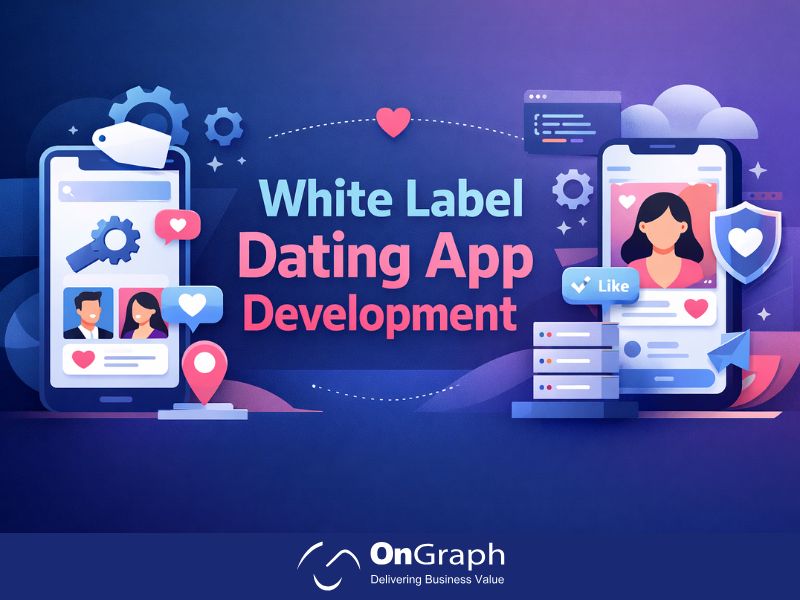In this article
- Why AI is the Future of Fitness
- Core Features of an AI-Powered Fitness App
- Popular Use Cases: AI in Fitness Industry
- Case Study: How FitnessAI Scaled to 100K+ Paying Users
- Step-by-Step AI Fitness App Development Process
- Cost of Developing an AI Fitness App
- Why Hire AI Fitness App Development Services?
- Final Thoughts: Future of AI in Fitness
The AI in fitness industry is undergoing a transformation—fueled by technology that personalizes workouts, predicts results, and keeps users motivated. If you’re planning to build the best AI-based fitness app, you’re entering a space where data meets discipline and artificial intelligence becomes your personal trainer.
In this comprehensive guide, we’ll explore:
- Key features of an AI-powered fitness app
- Must-have components for an AI fitness trainer app
- Development cost breakdown
- Real-world examples and market stats
- Why businesses are investing in AI fitness app development services
Why AI is the Future of Fitness
AI is changing how users interact with fitness platforms. From automated nutrition plans to adaptive workouts and motion tracking, artificial intelligence enables hyper-personalized health experiences.
- The global AI in fitness industry market is expected to reach $18.5 billion by 2030, growing at a CAGR of 28.1% (Allied Market Research).
- Apps with AI fitness coaching features see a retention rate 2x higher than generic workout apps (Sensor Tower).
Core Features of an AI-Powered Fitness App
A successful AI fitness coach app combines personalization, automation, and user motivation. Here are the must-have features:
1. Smart Workout Recommendations
Using historical data and fitness goals, AI can dynamically generate customized workout routines. Machine learning models adapt routines based on progress, injuries, or fatigue levels.
2. Motion Tracking & Form Correction
Integrate AI with a smartphone camera or wearables to analyze posture and exercise form in real-time. This reduces injury risk and helps users perform each movement correctly—just like a personal trainer would.
3. Voice-Activated AI Fitness Trainer
Enable voice feedback during workouts—“You’re slouching” or “Push harder for 10 more seconds!” Users engage more with a fitness AI trainer app that interacts with them like a human coach.
4. Integration with Wearables
Support devices like Apple Watch, Fitbit, or Whoop for real-time vitals, steps, heart rate, and sleep analysis. Syncing this data enables more accurate fitness and recovery planning.
5. Nutrition & Calorie Tracking
AI can generate meal plans based on fitness goals, dietary restrictions, and metabolic rates. Chatbots or voice agents can also suggest food alternatives and track daily nutrition.
6. Progress & Analytics Dashboard
A detailed analytics view helps users visualize calories burned, workouts completed, and progress made. This gamification motivates consistency.
7. AI-Powered Chatbot Support
A chatbot trained on fitness queries can handle user support, provide motivation, send reminders, and make the app feel alive.
Popular Use Cases: AI in Fitness Industry
To build the best AI fitness application, you must understand where AI is already making a difference:
1- Home Fitness with Form Correction
Apps like Freeletics and Tempo use AI and motion sensors to deliver gym-like results at home.
2- AI Personal Trainers
Apps like FitnessAI use machine learning to personalize strength training routines. It tracks reps, adjusts weights, and prevents overtraining.
3- Virtual Gym Coaching
Vi Trainer uses AI voice coaching during runs and workouts, guiding pace, form, and performance.
Case Study: How FitnessAI Scaled to 100K+ Paying Users
FitnessAI, a popular AI fitness trainer app, built its platform using OpenAI and custom neural networks. It provides strength training plans backed by over 5.9 million workout logs. By offering AI-personalized routines instead of generic templates, FitnessAI attracted:
- 100K+ paid users within the first year
- Retention rates are 40% higher than traditional apps
- A $5.99–$89/year subscription model
The lesson? Niche personalization at scale leads to loyal users.
Step-by-Step AI Fitness App Development Process
Step 1: Define Use Case & Goals
Do you want to build a weight loss app, muscle training solution, or holistic wellness app? Choose your niche carefully.
Step 2: Choose Your Tech Stack
- Frontend: Flutter / React Native
- Backend: Node.js / Python (for ML)
- AI & ML: TensorFlow, PyTorch, OpenAI API
- Cloud: AWS, Firebase, or Azure
- Motion Tracking: MediaPipe, PoseNet
Step 3: Train AI Models
You’ll need datasets on workout routines, movement patterns, and user behavior. Models are trained to:
- Recommend exercises
- Analyze form
- Personalize workouts
Step 4: Prototype and Test
Build an MVP with 2–3 key features like AI workout plans and motion tracking. Test with beta users.
Step 5: Launch and Market
Deploy the app on Android/iOS. Use SEO, influencer marketing, and App Store Optimization (ASO) to gain traction.
Cost of Developing an AI Fitness App
The cost of building an AI-powered fitness app depends on features, platform, and AI complexity. Here’s an estimate:
| Feature Set | Development Time | Cost (USD) |
| Basic App with AI Workout Generator | 2–3 months | $20,000 – $35,000 |
| AI Form Detection + Wearable Sync | 4–6 months | $40,000 – $60,000 |
| Full AI Fitness Coach App (Nutrition, Chatbot, Analytics) | 6–9 months | $70,000 – $120,000 |
Pro Tip: Using white-label AI fitness app development services can reduce time and cost by up to 50%.
Why Hire AI Fitness App Development Services?
Partnering with a skilled AI fitness app development company ensures you:
- Get proven expertise in LLMs, pose estimation, and fitness datasets
- Accelerate time to market
- Reduce bugs and iteration cycles
- Access white-label or semi-custom solutions
Final Thoughts: Future of AI in Fitness
As the fitness industry embraces AI, we’ll see more real-time coaching, preventive health interventions, and gamified wellness experiences. AI will not replace personal trainers—it will empower them and make fitness accessible to all.
Whether you’re a startup, gym chain, or healthtech entrepreneur, investing in a fitness AI trainer app today means future-proofing your business and giving users what they now expect: smart, personalized, results-driven fitness.
FAQs
It collects user data, analyzes fitness patterns using machine learning, and offers personalized workout and nutrition plans, real-time feedback, and predictive results.
A basic app starts at $20,000–$35,000. A full-featured solution with AI-based coaching, tracking, and voice support can cost $70,000–$120,000+.
AI workout suggestions, real-time form correction, voice coaching, chatbot support, personalized analytics, and meal planning are top-rated.
Yes, many development companies offer white-label AI fitness app development services, which reduce time-to-market and cost significantly.
About the Author
Let’s Create Something Great Together!
Latest Blog
















